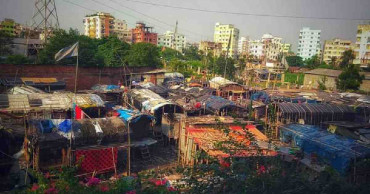Covid-19 antibody
Covid antibody higher among Dhaka slum dwellers: icddr,b
The presence of Covid-19 antibody is higher among the residents of slums than adjacent low-to-middle-income non-slum areas, suggesting that the people of these areas were infected more with the deadly virus.
A study, carried out by icddr,b between October 2020 and February 2021 among 3,220 people living in slums and adjacent non-slum areas in Dhaka and Chattogram cities, revealed the above information.
The main objective of the study, titled ‘Drivers of Covid-19 in Slums and Non-slum Areas of Dhaka and Chattogram’, was to ascertain the seroprevalence of Covid -19 among slum and non-slum dwellers, and identify probable risk factors.
Also read: Covid-19: Bangladesh reports 76 more deaths, 4,846 fresh cases
According to the study, the overall seroprevalence positivity among the participants was 68%, while the rate was 72% among people living in slums and 62% among residents of non-slum areas.
The seropositivity was similar across adults (70%) and children (65.5%). The seroprevalence was higher in females (70.6%) than in males (66%).
Higher seroprevalence was found in individuals with fewer years of education, diabetes, overweight, and hypertension.
Also read: Hasina suggests 6 points for framing post-Covid global recovery plan
Lower seroprevalence was found in individuals who frequently washed hands, did not put fingers on the face/in the nose, have been vaccinated with BCG, and carried out moderate physical activities.
The study led to two conclusion -- the overall seropositivity was higher in Dhaka than in Chittagong, and estimated SARS-CoV-2 antibody seroprevalence was higher in slums than in the adjacent low-to-middle-income non- slum areas, according to a media release.
4 years ago

